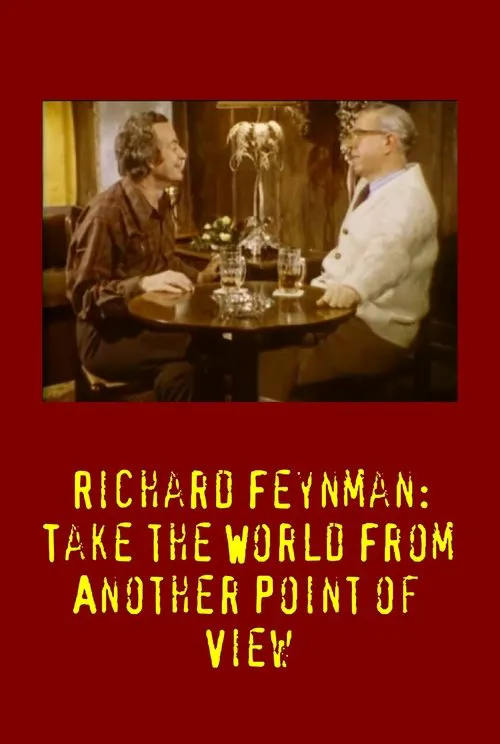Take the World From Another Point of View

Plot
In 1973, the Yorkshire public television took the opportunity to document the renowned physicist Richard Feynman during his visit. The short film that emerged from this endeavor, Take the World from Another Point of View, would eventually be broadcast in the United States as part of the esteemed PBS Nova series. While the documentary primarily showcases a captivating interview with Feynman, its true distinguishing characteristic lies in its inclusion of a lively conversation he had with none other than the illustrious British astrophysicist Fred Hoyle. One of the most compelling aspects of Take the World from Another Point of View is the intellectual dynamic that unfolds between Feynman and Hoyle. On the surface, these two highly respected figures appear to hold differing perspectives on the universe. Feynman, known for his straightforward yet incisive approach to scientific inquiry, engages in a thought-provoking dialogue with Hoyle, whose unorthodox views on the Big Bang theory of cosmology often find themselves at odds with the scientific mainstream. During their conversation, Hoyle, an adherent of the Steady State theory, disputes the prevailing notion that the universe underwent a sudden and violent expansion approximately 13.8 billion years ago. In contrast to this theory, the Steady State model proposes that the universe has always existed in its current form and continues to expand due to the creation of new matter. Feeding into this idea were theories of continuous creation that involved the steady and eternal creation of new matter to balance the destruction caused by supernovae, a process which made the universe always look about the same in its large-scale structure. Hoyle's opposition to the Big Bang theory stems from his concern that the universe's age, as calculated based on the expansion of space, seems far too short to accommodate the complexity and diversity of life that we observe today. Feynman, on the other hand, approaches the subject with a scientist's skepticism. He questions Hoyle on various topics, encouraging an in-depth exploration of the principles underpinning the Big Bang theory. This intellectual sparring match between Feynman and Hoyle takes an interesting turn when the conversation shifts to the role of human intuition in scientific inquiry. Feynman, an ardent proponent of empirical evidence, cautions that human intuition ought not to be a reliable guide for understanding the laws of physics. According to Feynman, intuition is an unreliable factor in decision-making; it's something he would come to reiterate in his 1985 book "QED: The Strange Theory of Light and Matter," which would later help shape the public perception of quantum mechanics. On the other hand, Hoyle emphasizes the importance of intuition in scientific theory development. Hoyle attributes his intuitive grasp of the Steady State theory to his long-held conviction that the universe is in a constant state of flux. For Hoyle, intuition provides him with the confidence to challenge conventional wisdom in science and explore unorthodox explanations. It's fascinating to observe the interplay between Feynman's skepticism and Hoyle's unwavering conviction in their conversation. While Feynman's rigorous adherence to empirical evidence lends itself to the scientific method, Hoyle's reliance on intuition opens up an intriguing perspective on theoretical development in cosmology. The dynamic conversation that takes place between Feynman and Hoyle offers a rare insight into the intricacies of scientific collaboration and theoretical debate. As both thinkers engage in an intellectually stimulating discussion, the viewer is treated to a nuanced understanding of the tensions that often arise in the pursuit of knowledge. Through their lively discussion, Take the World from Another Point of View humanizes the scientific process and highlights the complexities inherent in seeking truth. Ultimately, the conversation between Feynman and Hoyle transcends the realm of cosmological theories and enters the domain of the human experience. Their discussion serves as a poignant reminder that scientific inquiry is a deeply personal endeavor, marked by conflicting perspectives, intuition, and an unwavering pursuit of understanding. By witnessing the intellectual exchange between two of the 20th century's leading scientific minds, Take the World from Another Point of View stands as a testament to the power of scientific discourse. As a work of documentary cinema, it masterfully captures the spirit of inquiry that has long driven humanity to push the boundaries of knowledge.
Reviews


